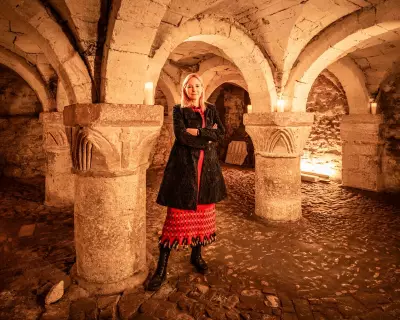
Far from the glittering lights of London's music industry, an extraordinary cultural movement is taking root in the rain-soaked towns of Yorkshire and Lancashire. Dubbed 'Northern Gothic', this raw and atmospheric music scene is capturing the imagination of listeners worldwide with its haunting authenticity.
The Sound of the North
Northern Gothic isn't just a genre—it's a visceral response to the landscape that birthed it. Characterised by brooding atmospheres, industrial textures, and lyrical themes drawn from working-class life, this music carries the weight of post-industrial towns and the beauty of their resilience.
Artists like Richie Culver, who grew up in Hull before finding success, embody this spirit. His work blends personal narrative with broader social commentary, creating something both deeply personal and universally resonant.
Manchester's Unconventional Champions
While London typically dominates music industry attention, Manchester has become the unexpected hub for Northern Gothic. The city's Rainy Miller has emerged as a pivotal figure, both as a solo artist and as a collaborator who brings together disparate voices from across the north.
Miller's work with Iceboy Violet represents the scene's collaborative ethos—a rejection of industry competition in favour of creative community. Their partnership produces music that's both challenging and emotionally immediate, drawing from hip-hop, industrial, and experimental traditions.
Why This Movement Matters Now
Northern Gothic arrives at a crucial moment for British culture. As the cost of living crisis makes London increasingly inaccessible to working-class artists, regional scenes are flourishing with renewed urgency.
This isn't nostalgia—it's a forward-looking movement that reimagines northern identity beyond tired stereotypes. The music acknowledges hardship without romanticising it, finding beauty in the everyday and power in authenticity.
The Future of Northern Sound
What makes Northern Gothic particularly compelling is its organic growth. Unlike manufactured scenes of the past, this movement has developed through genuine connection and shared experience.
As these artists gain international recognition, they're proving that you don't need to leave the north to make vital, contemporary art. In fact, it might be precisely because they remain connected to these places that their work resonates so powerfully.
The message is clear: the future of British music isn't just happening in the capital—it's being forged in the rain-drenched streets of northern towns, where authenticity isn't a marketing strategy but a way of life.





